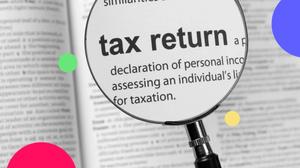8 ways to avoid the most common tax mistakes
By Cherry Reynard
1 Oct, 2024
For many, tax mitigation strategies conjure up complex ideas of offshore trusts and tax havens. In reality, there are plenty of (legitimate) ways to minimise tax, and many are straightforward! They don’t require a cunning tax lawyer, but are freely available to everyone. Here are eight of the best.

1. Check your tax code
HMRC gives you a tax code at the start of each tax year, but it doesn’t always get it right. They use a combination of information from your employer, pension provider, and their own records. They start with your tax-free Personal Allowance, then adjust it based on your estimated income, any taxable benefits (like that fancy company car), and any tax you owe from previous years. It's mostly done by computers these days – no surprise there – but humans do step in for more complex cases or if you raise a query.
If people are allocated the wrong code, they can end up paying too much tax. This can be clawed back by submitting a tax return, but many people don’t realise they’re paying the wrong amount and so HMRC just bags the difference. You can check your tax code here.
2. Use SIPPs and ISAs to the max
The allowances for SIPPs and ISAs are generous. Investors can shelter up to £20,000 in an ISA and £60,000 in a pension. In normal circumstances, you should make sure you’ve used up all these allowances before you think about investing elsewhere. Too many people have cash hanging around in savings accounts, where they are paying 40% on their interest payments when they could be tidied away in an ISA and be growing tax-free.
If you are lucky enough to have used up all your personal allowances, consider those of your spouse and Junior ISAs for children. You will find you can shelter an enormous amount in these basic tax wrappers each year before you have to do anything complicated!
The table below illustrates your personal allowance across different products.
Product | Maximum allowance |
Cash ISA | £20,000 |
Stocks & Shares ISA | £20,000 |
Lifetime ISA | £4,000 |
Junior ISA | £9,000 |
SIPP | £60,000 |







